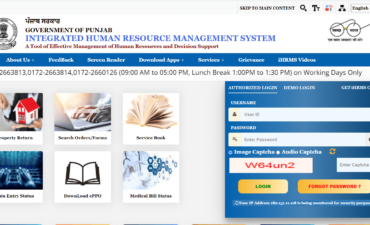Introduction
Personal finance is a critical aspect of everyone’s life, encompassing the management of income, expenses, investments, and savings. Sound financial practices are essential for achieving financial goals, building wealth, and attaining financial security and independence. In this article, we will explore the key principles and strategies of personal finance that can empower individuals to make informed decisions, take control of their financial futures, and lead a financially responsible life.
Budgeting: The Foundation of Financial Success
1.1. Understanding the Importance of Budgeting
Budgeting involves creating a plan for managing income and expenses, providing a clear picture of where money is going and how it can be allocated to achieve financial goals. It is the fundamental tool for gaining control over finances.
1.2. Creating a Personal Budget
To create an effective budget, track all sources of income and categorize expenses, including fixed and variable costs. Identify areas where spending can be reduced and allocate funds for savings and investments.
1.3. Benefits of Budgeting
Budgeting helps in avoiding overspending, reducing debt, and cultivating disciplined financial habits. It also allows for better financial planning, ensuring resources are allocated appropriately for short-term needs and long-term goals.
Debt Management: Breaking Free from the Debt Cycle
2.1. Understanding Good Debt vs. Bad Debt
Not all debt is created equal. Good debt, such as a mortgage or student loan, can be an investment in future earnings or assets. On the other hand, bad debt, like high-interest credit card debt, can hinder financial progress.
2.2. Debt Repayment Strategies
Develop a debt repayment strategy by prioritizing high-interest debts and using methods like the debt snowball or debt avalanche. Making regular and larger payments can accelerate debt payoff and save on interest.
2.3. Avoiding Accumulation of New Debt
Practice responsible credit card usage, paying off balances in full, and avoiding unnecessary borrowing to prevent the accumulation of new debt.
Building an Emergency Fund: A Safety Net for Unforeseen Events
3.1. The Importance of an Emergency Fund
An emergency fund is essential for financial security, providing a safety net during unexpected events, such as medical emergencies, job loss, or major repairs.
3.2. How Much to Save in an Emergency Fund
Aim to save three to six months’ worth of living expenses in the emergency fund. Gradually build the fund by setting aside a portion of income each month.
3.3. Keeping the Emergency Fund Liquid
Keep the emergency fund in easily accessible and liquid accounts, such as a savings account or a money market fund, to quickly access funds when needed.
Investing for the Future: Growing Wealth and Achieving Financial Goals
4.1. Understanding the Power of Compound Interest
Investing allows money to grow exponentially through the power of compound interest. Start investing early to take advantage of the compounding effect.
4.2. Diversification and Risk Management
Diversify investments across different asset classes to manage risk. A well-balanced portfolio can help cushion against market volatility.
4.3. Retirement Planning
Start retirement planning early to ensure a comfortable and financially secure retirement. Contribute to retirement accounts like 401(k)s or IRAs and take advantage of employer matches if available.
4.4. Long-Term vs. Short-Term Goals
Distinguish between long-term and short-term financial goals. Allocate investments and savings accordingly to align with each goal’s timeline.
Mindful Spending: Making Informed Financial Decisions
5.1. Differentiating Needs vs. Wants
Practice mindful spending by distinguishing between essential needs and discretionary wants. Focus on fulfilling needs first before allocating resources for wants.
5.2. Delaying Gratification
Develop the habit of delaying gratification. Avoid impulse purchases and evaluate whether a purchase aligns with financial goals before making it.
5.3. Shopping Smartly
Look for discounts, compare prices, and consider using coupons or cashback rewards to save money on purchases.
Seeking Professional Advice: When and Why?
6.1. The Role of Financial Advisors
Financial advisors can offer valuable guidance and expertise in developing comprehensive financial plans, investment strategies, and retirement planning.
6.2. DIY vs. Professional Advice
Decide whether to manage personal finances independently or seek the assistance of a financial advisor based on individual financial knowledge, complexity of financial situations, and comfort levels.
Avoiding Common Financial Mistakes
7.1. Overspending and Impulse Buying
Avoid overspending by sticking to a budget and curbing impulsive buying behavior.
7.2. Neglecting Savings and Investments
Start saving and investing early to benefit from compound interest and achieve financial goals.
7.3. Ignoring Debt Repayment
Prioritize debt repayment to avoid accruing high-interest debt and hindering financial progress.
7.4. Not Having Adequate Insurance Coverage
Invest in appropriate insurance coverage, such as health, life, and disability insurance, to protect against unexpected financial burdens.
Conclusion
Personal finance is a journey that requires discipline, knowledge, and continuous learning. By adhering to the principles and strategies outlined in this article, individuals can take control of their financial destinies, make informed decisions, and work towards achieving financial well-being and independence. Whether it’s creating a budget, managing debt, building an emergency fund, investing wisely, or making mindful spending choices, every step taken toward responsible financial management brings us closer to a secure and prosperous future. Remember, the key to financial success lies in taking action and embracing the journey of personal finance with confidence and determination.











